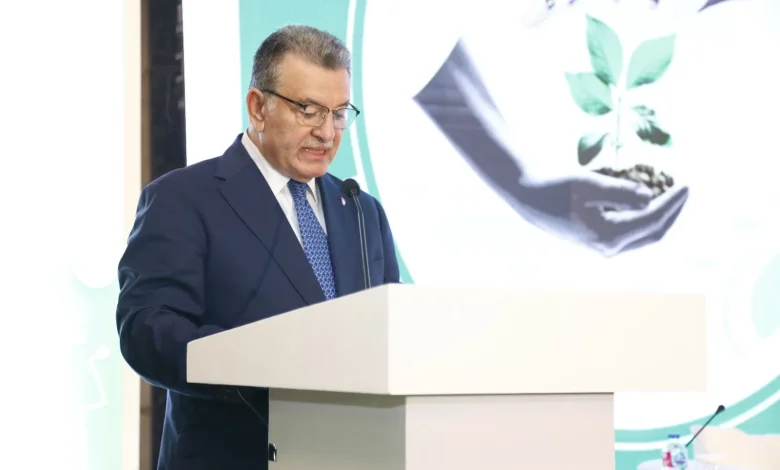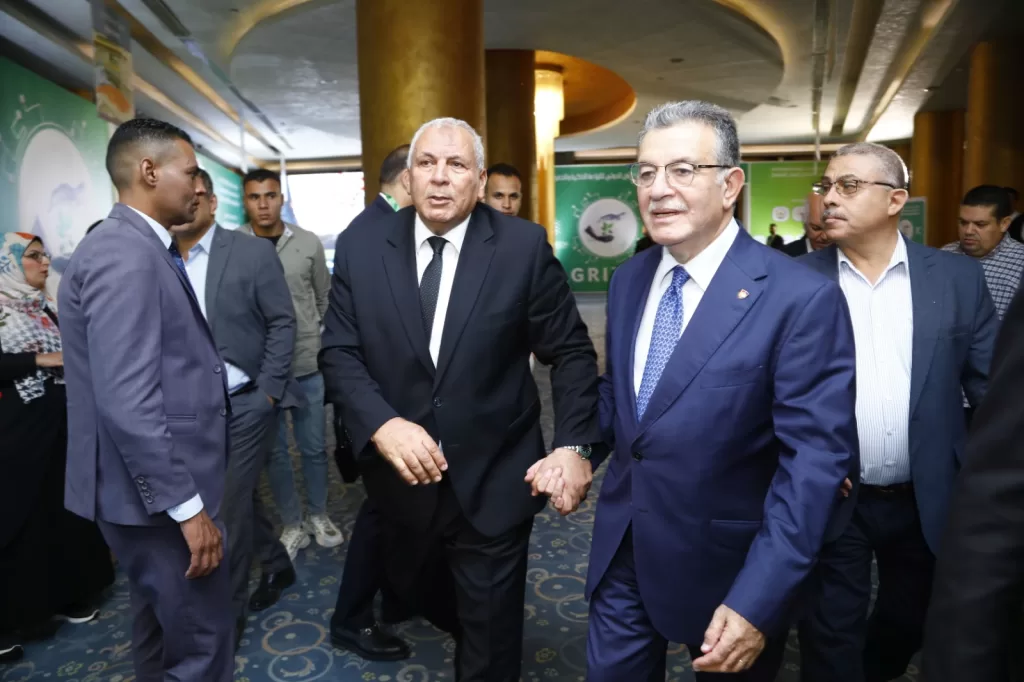Success of 1st International Forum on Smart and Green Agriculture: Agritech 2024

Use of Modern Technologies, Technical Support for Farmers, and Green Financing
Establishing a Regional Alliance to Enhance Space Utilization for Sustainable Food Security Development
As the inaugural International Forum on Smart and Green Agriculture, Agritech 2024, concluded in Cairo on October 28 and 29, participants shared valuable insights and recommendations to tackle the challenges of implementing modern agricultural technologies in rural Egypt, particularly for smallholdings.
A key recommendation emphasized the establishment of startups that would unite smallholder farmers within close geographical proximity. These startups aim to enhance irrigation and farming methods by leveraging renewable energy technologies and artificial intelligence, aligning their practices with those of larger agricultural enterprises.
The forum, organized under the auspices of multiple ministries—including Agriculture, Planning, International Cooperation, Environment, and Irrigation—as well as various international organizations, showcased successful initiatives integrating modern technology and clean energy into Egyptian rural agriculture. Highlighted during the event were the experiences of three smallholder farmers who utilized advanced irrigation systems and solar energy, part of a broader initiative to elevate agricultural businesses in rural regions.
Additionally, business leaders from the Agricultural Exporters Association committed to facilitating a free trip to Italy for farmers who shared their successful practices at the forum. This initiative is designed to expose these farmers to cutting-edge global agricultural technologies and connect them with European importers, ultimately boosting Egyptian agricultural exports.

The forum fostered productive dialogue among agricultural experts, professors, and representatives from international organizations dedicated to agricultural development. Notable partners included the U.S. Agency for International Development (USAID), the German Agency for International Cooperation (GIZ), the World Food Programme (WFP), the Arab Organization for Agricultural Development, and the International Fund for Agricultural Development (IFAD).
Dr. Ali Shams El-Din, a professor of plant protection and biotechnology at Benha University and chairman of the organizing committee, underscored the importance of the forum’s recommendations. He stated that these would be forwarded to relevant authorities for implementation in collaboration with international organizations.
An accompanying exhibition featured a range of agricultural entities and companies showcasing technologies aimed at enhancing productivity and promoting smart and green agriculture. The forum also focused on expanding the transition to renewable energy, improving energy efficiency, and accelerating the establishment of emissions-free energy systems across all sectors of agriculture and food production.
Dr. Shams El-Din emphasized the significance of gathering stakeholders, producers, business leaders, scientists, and researchers to address pressing issues, align visions, and identify strategic directions for the future. This collaborative environment allowed for the sharing of modern technological solutions and successful practices, highlighting the critical need for a transition to smart and green agriculture.
The forum comprised six sessions that delved into opportunities for collaboration, the roles of international development partners, and the potential for comprehensive strategic partnerships. Representatives from the World Bank, various European countries, the United Kingdom, and agricultural partner organizations contributed to discussions on innovations and modern practices in smart and green agriculture.
Participants also reviewed strategies for optimizing water resource use, enhancing irrigation methods, and integrating renewable energy applications to produce sufficient global food while adhering to contemporary energy transformation commitments related to climate change and carbon emissions. Additional topics included climate financing, green financing, the Carbon Border Adjustment Mechanism (CBAM), carbon removal strategies, private investment, and the pivotal role of banks and financial institutions in advancing these initiatives.

